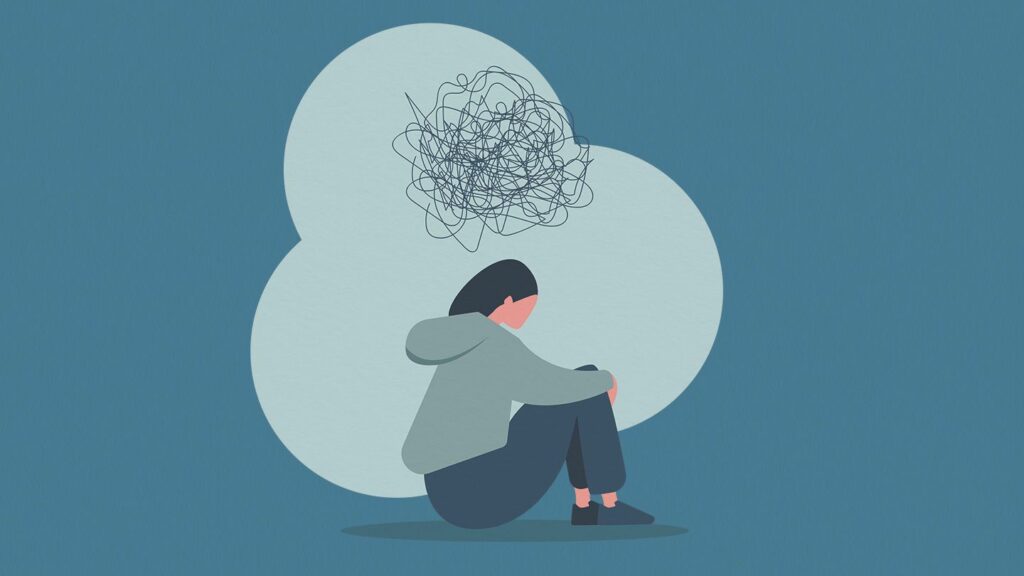Do you ever worry about the meaning of life? Or feel like you’re constantly questioning your existence? If so, you may be experiencing existential OCD. This type of OCD is characterized by obsessive thoughts and doubts about the meaning of life, the universe, and our place in it. While it can be difficult to deal with, there are treatments available that can help you manage your symptoms. In this blog post, we will discuss what existential OCD is, as well as some of the most common treatment options.
Contents
What Is Existential OCD?

Existential OCD is a subtype of OCD that is characterized by obsessive thoughts and doubts about the meaning of life, the universe, and our place in it. People with this type of OCD may have difficulty accepting that life is ultimately meaningless, and they may become fixated on trying to find answers to big questions like “Why are we here?” or “What happens after we die?”. Existential OCD involves intrusive, repetitive thinking about questions that cannot have possible answers. These questions or thoughts may be philosophical or frightening
Existential OCD is not the same as simply having questions about life or feeling down about the state of the world. For people with this disorder, these thoughts are all-consuming and can be very difficult to manage. If you have existential OCD, you may obsessively search for answers to your questions, or try to find comfort in religion or philosophy. You may also avoid people and activities that remind you of death or the impermanence of life. In severe cases, existential OCD can lead to social isolation and depression.
Causes Of Existential OCD
There is no one cause of existential OCD. However, some risk factors may make you more likely to develop this disorder. These include:
- Having a family history of OCD or other mental health disorders
- Experiencing trauma or loss
- Having a history of anxiety or depression
- Facing exposure to philosophical or religious beliefs that cause doubt or anxiety
- Avoiding people and activities that remind you of death
- fixated on trying to find answers to big questions like “Why are we here?” or “What happens after we die?”.
- Going through a major life event, such as the death of a loved one
- Having another mental health disorder, such as anxiety or depression
- Using certain drugs or alcohol
It’s also important to note that existential OCD is not caused by intelligence. Existential OCD is also not the same as simply having questions about life or the future.
Symptoms Of Existential OCD

The primary symptom of existential OCD is obsessions about life’s big questions. These thoughts can be so intrusive and distressing that they interfere with your daily life. Other symptoms may include:
- Avoidance of people or activities that remind you of death
- Anxiety
- Fixation on trying to find answers to big questions like “Why are we here?” or “What happens after we die?
- Intrusive, repetitive thinking about questions that cannot possibly be answered.
- Depression
- Social isolation
- Watching/reading too much content centered around the meaning of life
Common Treatment Options
Existential OCD can be a difficult disorder to deal with, but there are treatments available that can help.
Therapy
Exposure and Response Prevention (ERP) Therapy. This treatment involves gradually exposing yourself to the things that trigger your obsessive thoughts, while simultaneously learning to control your urge to engage in compulsions (such as excessive research or avoidance behaviors). ERP can be done with a therapist in an outpatient setting, or through self-guided exposure exercises at home.
Cognitive-Behavioral Therapy (CBT). CBT can help you learn to challenge and reframe your negative thinking patterns, and medication can be used to help manage anxiety and depression.
Self-Help Tips
In addition to therapy, there are also some things you can do on your own to help manage your symptoms.
Some self-help tips include:
- Identifying your triggers and learning to avoid or cope with them
- Challenging your negative thinking patterns
- Practicing mindfulness and acceptance
- Building a support system of friends or family members who understand your condition
- Finding ways to relax and reduce stress
- Writing feared sentences 25x per day until you get bored with them.
- Resisting the urge to read and research topics
- Exploring an activity that brings you joy and helps you relax
- Remembering that everyone has questions about life and that it’s okay to not have all the answers
If you are struggling with existential OCD, know that you are not alone. Therapists at Mantra Care are available 24×7 from all around the world to provide you with affordable and effective therapy sessions.
Conclusion
In conclusion, existential OCD is a subtype of OCD that characterizes itself by obsessive thoughts and doubts about the meaning of life. If you are struggling with this disorder, it is important to remember that you are not alone and that there are treatment options available.
If you are looking for affordable Online OCD Counseling MantraCare can help: Book a trial OCD therapy session


